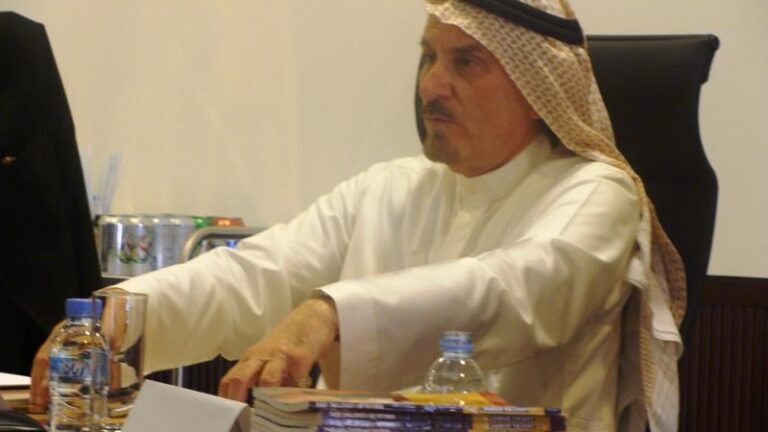American Studies, Dialogue Series, Environmental Studies, Regional Studies
New Geo-Political Realities of the Gulf

Khaled Almaeena, Editor-in-Chief of Arab News, was invited to give a CIRS Focused Discussion on the topic of “New Geo-Political Realities of the Gulf” on March 22, 2011. Almaeena explained the relationship between the Gulf states and America and how each conducts its foreign policies. “The main thrust of the Gulf’s American relations,” he said, “is based on Saudi-American relations, which are now like a dysfunctional marriage” insofar as the two countries get along, but still do not see eye to eye when it comes to certain issues, such as the situation in Palestine.
Recalling the history of “Saudi-American relations” specifically, Almaeena explained that this alliance “initially started on an economic footing with the advent of the oil industry,” and then grew into a relationship based on military and security issues over the decades. By and large, this relationship was stable up until the events of September 11, 2001, after which the nature of the relationship was radically altered, both on the political and social fronts. Almaeen argued that “the media played a role that swayed people totally against Saudi Arabia” and created a division between America the Muslim world. In fact, he said, the situation was so bad that, as editor of Arab News, his office received a multitude of hate-mail from readers in the west accusing Saudi Arabia of involvement in the atrocities.
Out of all of the Gulf states, Saudi Arabia has one of the closest relationships with the United States. Although this relationship has meant that Saudi Arabia enjoys a strong regional and international political standing, for the very same reason, it reason it has suffered ridicule from other countries in the Arab world that see this relationship as a negative progression and a conflict of interest. Regardless, the Saudis understand that the main concern is to have and maintain a mutually beneficial relationship with as many countries as possible. This, however, is not always possible, as Almaeena argued, “We [Saudi Arabia] were being goaded by the United States to take a very negative and even a hostile stance against Iran.”
In conclusion, Almaeena said that change in Saudi Arabia’s relationship with the United States is inevitable. “For the Saudis and for the Gulf states, to go ahead with American policy dictates is detrimental,” he said. Although the relationship has been a rocky one in recent years, Almaeena did not give up hope on a future based on transparency and mutual respect. He explained that “an Arab-American rapprochement would be a great boon and benefit for the world.” This is especially important given the seismic political changes currently taking place all over the Middle East. The power of public and civil movements, he said, is teaching regional and international governments to reassess their foreign policies by first of all looking inwards and realizing the aspirations of their people.
Khaled Almaeena has held a broad range of positions in Saudi Media including CEO of a Public Relations firm, Saudi Television news anchor, talk show host, radio announcer and journalist. As the Editor-in-Chief of Arab News, the largest English-language newspaper in the Middle East, Almaeena steered the paper through the Gulf Crisis and pioneered bringing newspapers back to a liberated Kuwait.
Article by Suzi Mirgani, CIRS Publications Coordinator